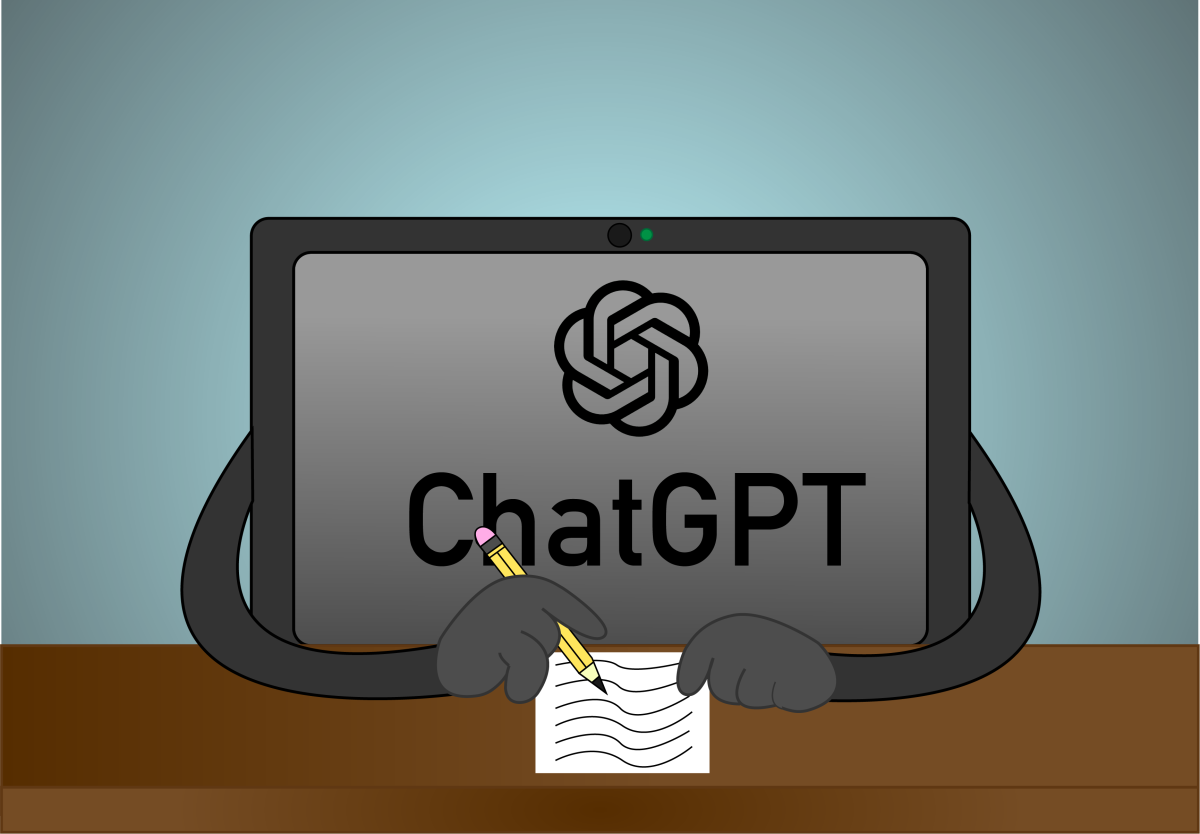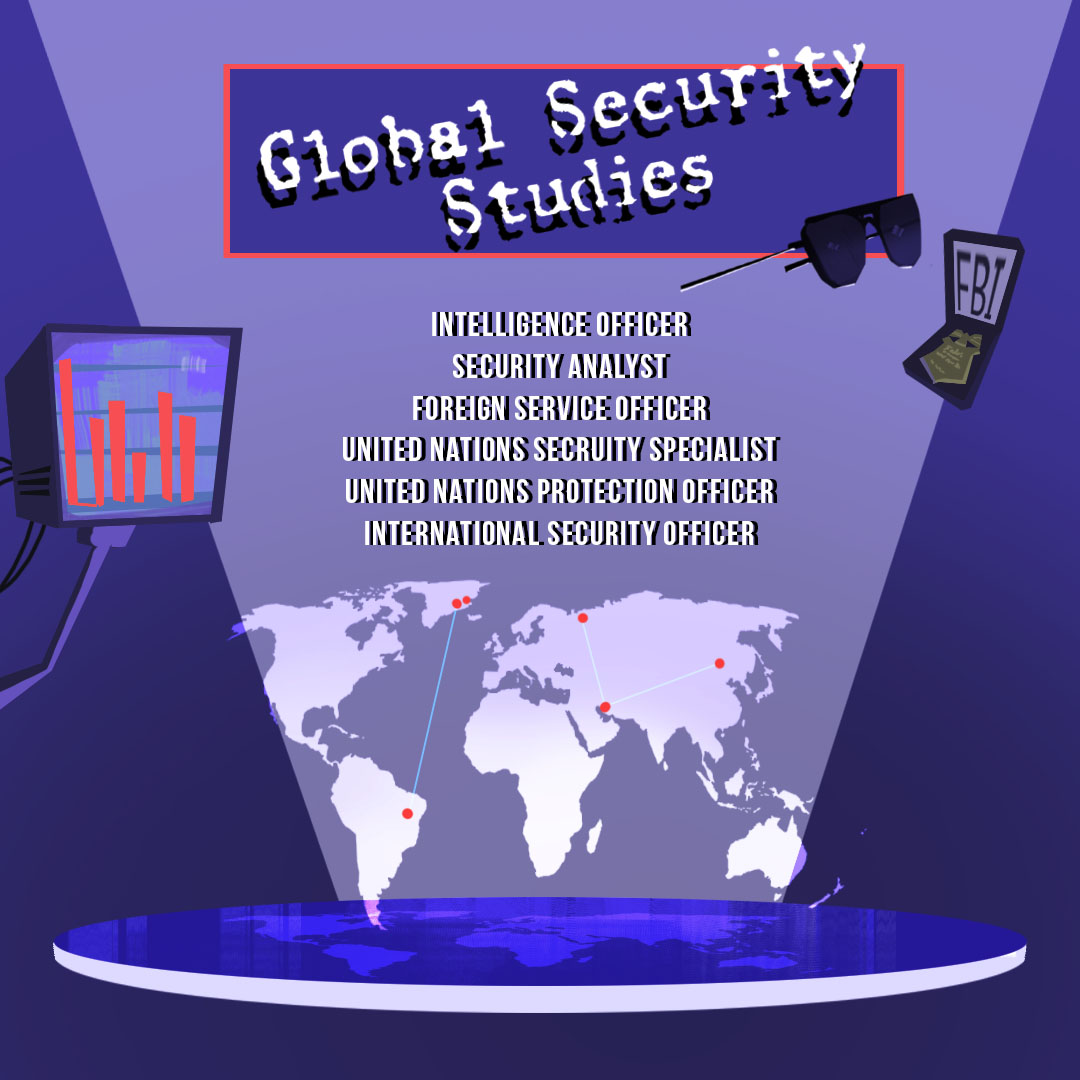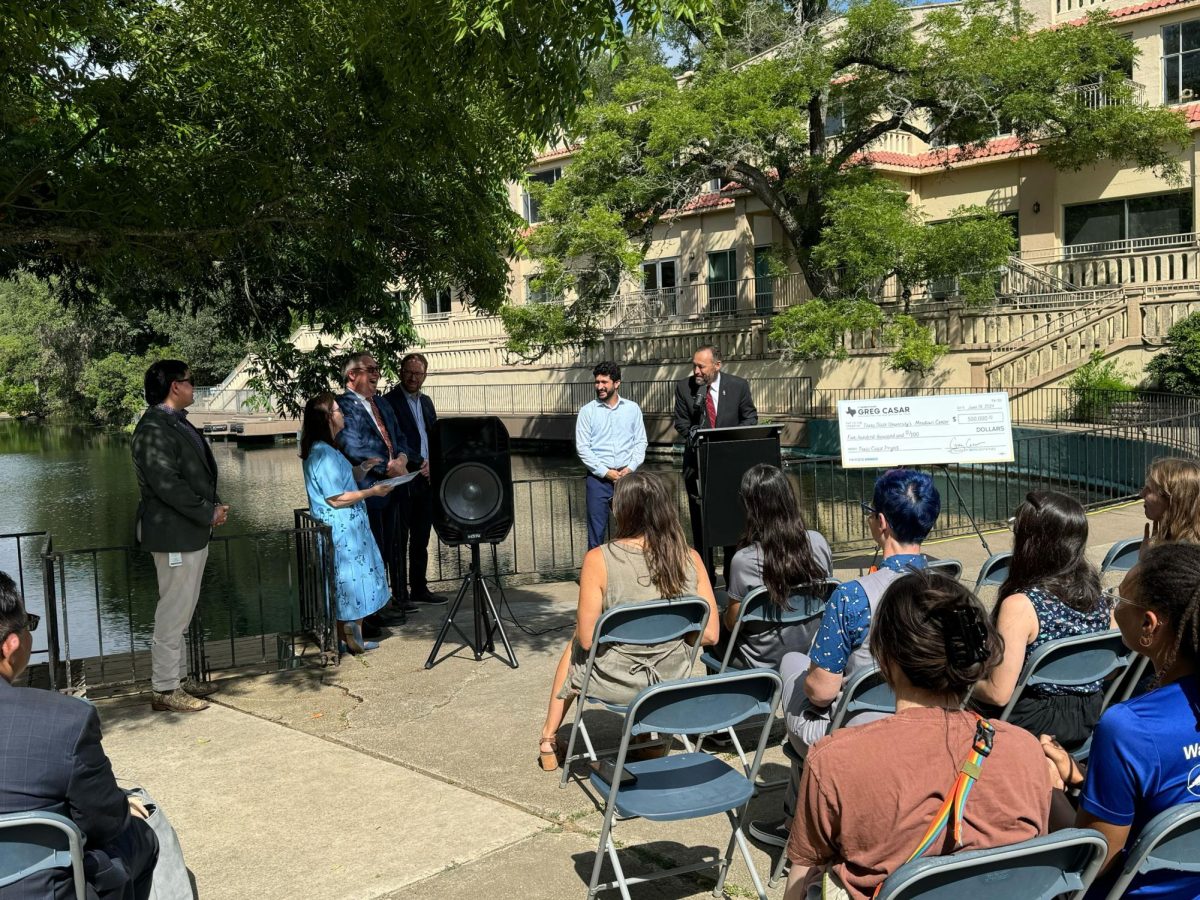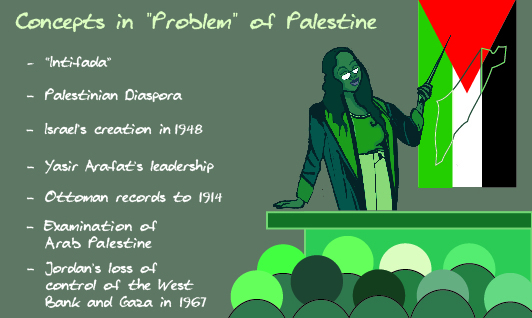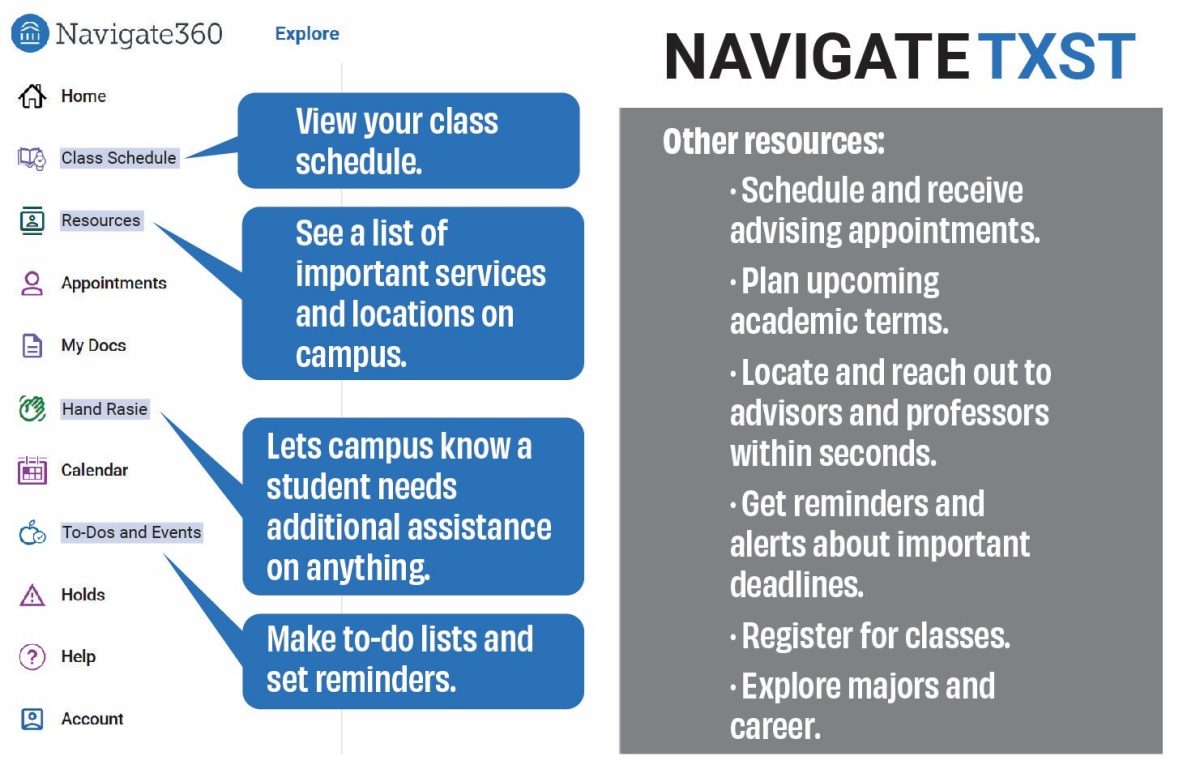Technology is coming to college campuses in a new way with the artificial intelligence software ChatGPT. Professors express that this tool is both a blessing and a curse in their classrooms.
Released in November, ChatGPT’s website was created by the San Francisco-based artificial intelligence company Open AI. Since its release, the program has become a site for students around the nation to use on schoolwork and essays among other tasks.
Katelyn Hammack, a graduate instructional assistant in the Department of English, said the plagiarism technology that the department uses can detect when an assignment has been written by ChatGPT.
“I think a lot of students don’t know how user-friendly Turnitin is on our side,” Hammack said. “It will tell me if the submission came from Chegg, if it came from a different university or even from Wikipedia.”
Turnitin is an anti-plagiarism software that detects if someone has used another person’s words or work for their written assignments. The software flags anything that seems unoriginal from the work submitted and alerts the professor. Many college campuses including Texas State have it built into websites used for turning in assignments.
Hammack said that if the software becomes too much of a problem for her future classroom, she will consider switching to strictly handwritten assignments only.
“Even if you allow students to write by hand at home, they can still use the technology to cheat,” Hammack said. “That’s a slippery slope that we’re going down. I honestly believe it will have to be a case-by-case situation.”
Open AI has warned people that their technology can produce false information, including biased responses. The company states that if the software is used to write something for the user, it could be incorrect.
Ross Feeler, an English professor, said that the department is already hosting meetings about what to do with the new AI.
“We had discussions about it at the beginning of the semester and there have been continued discussions about it throughout the year,” Feeler said. “We talked about either trying to cut off [ChatGPT] use or trying to incorporate it in a way that students can understand its limitations.”
Using an AI software to complete essays and other written assignments without permission is considered cheating by professors. Feeler thinks ChatGPT is a great tool, but can also be a hassle for professors.
“On one hand I think the technology is amazing,” Feeler said. “I think I’m somewhat in awe of the technology and also quite annoyed by the possibility that I have to put in these extra measures to keep students honest.”
Feeler believes that there could be potential benefits to AI in the classroom and hopes that it won’t be used only in negative ways.
“I think it is possible that students use it as a tool and not just as a replacement,” Feeler said. “Maybe students are using it to clarify a series of points or to gather information and then they are applying their own style or voice alongside of that.”
ChatGPT helps users with almost anything, from answering multiple-choice questions to creating news articles in a matter of seconds. The software can also correct coding problems, papers and other written assignments.
According to a college survey of 1,000 undergraduate and graduate students by Best Colleges, 45% of students have used ChatGPT. Of the college users, 50% said they have used AI to complete assignments and exams. 61% percent of students believe that this new technology will become the new normal for the world.
From the same survey, students were asked if AI tools should be prohibited in educational settings. 38% percent said no, 35% were neutral and 27% said yes.
Vangelis Metsis, an associate professor of computer science, said he knows professors who have caught students cheating with ChatGPT. If a student is caught using AI to do any type of schoolwork without instruction from the professor to do so, they will face disciplinary action according to the Texas State academic honor code.
The code states that cheating means “purchasing or otherwise acquiring and submitting as one’s own work any research paper or other assignment prepared by another individual or by a firm.”
“I have heard of instances where other professors have encountered such situations [of cheating],” Metsis said. “The main concern is that students might use the tool to complete assignments or exams without genuinely understanding the underlying concepts.”
Metsis gave examples of how this new technology has the potential to be something great for students, and how the future of the classroom looks for universities.
“AI-powered tools like ChatGPT can be integrated into curriculums to provide tailored feedback, helping students to better understand and apply the material,” Metsis said. “As we learn more about the capabilities and limitations of these systems, we will be able to integrate them into the learning process in a more productive way.”
For more information on ChatGPT, visit its website.
ChatGPT sparks debate on academic integrity in class
April 6, 2023
Donate to The University Star
Your donation will support the student journalists of Texas State University. Your contribution will allow us to purchase equipment and cover our annual website hosting costs.











